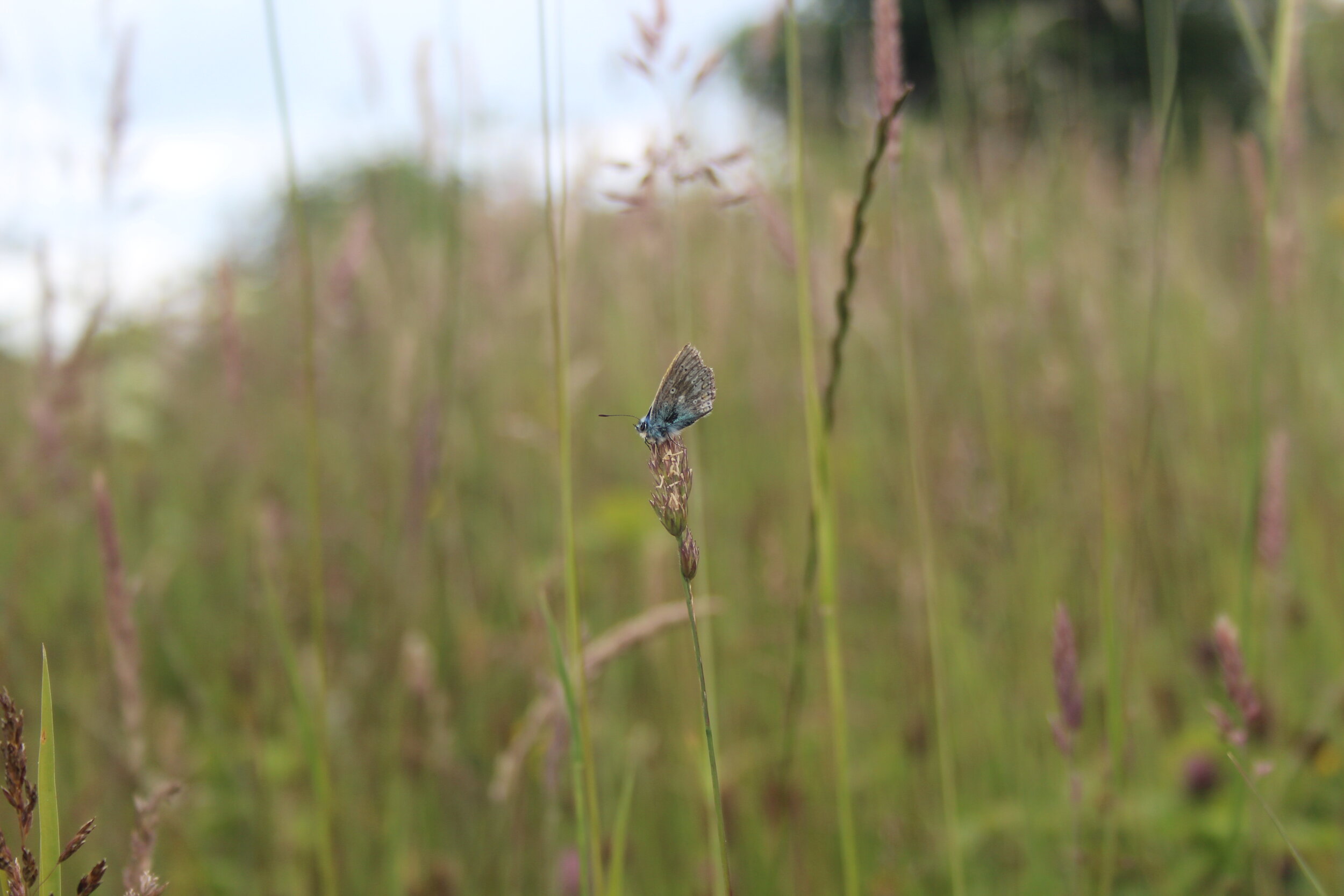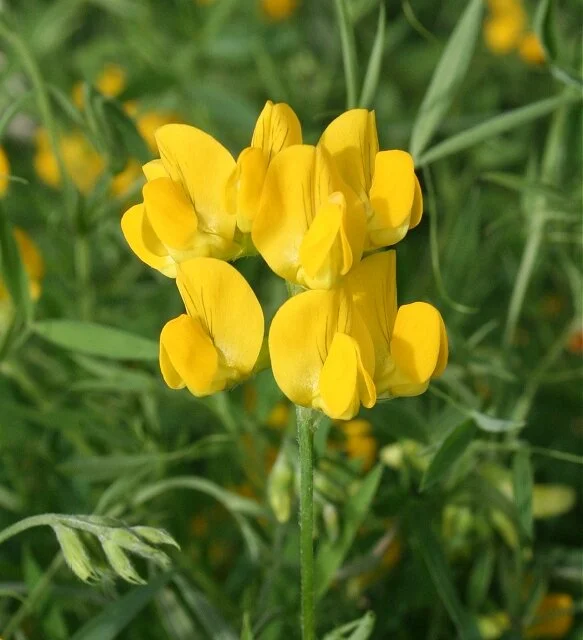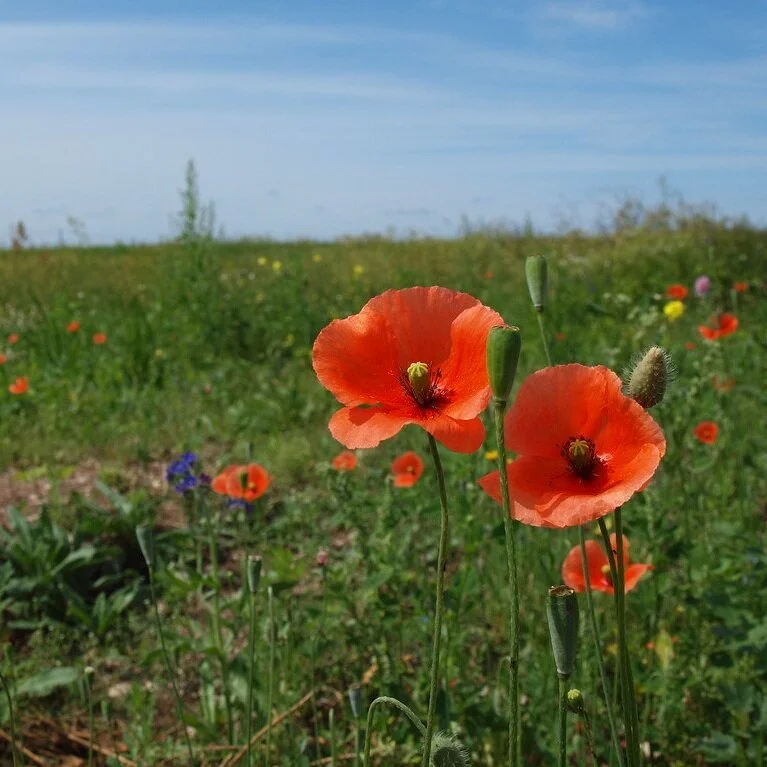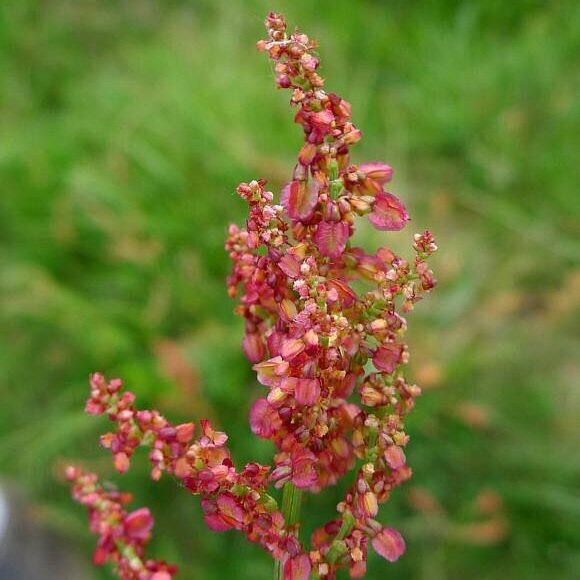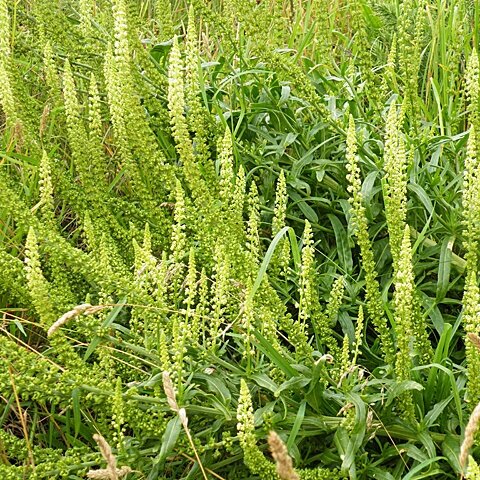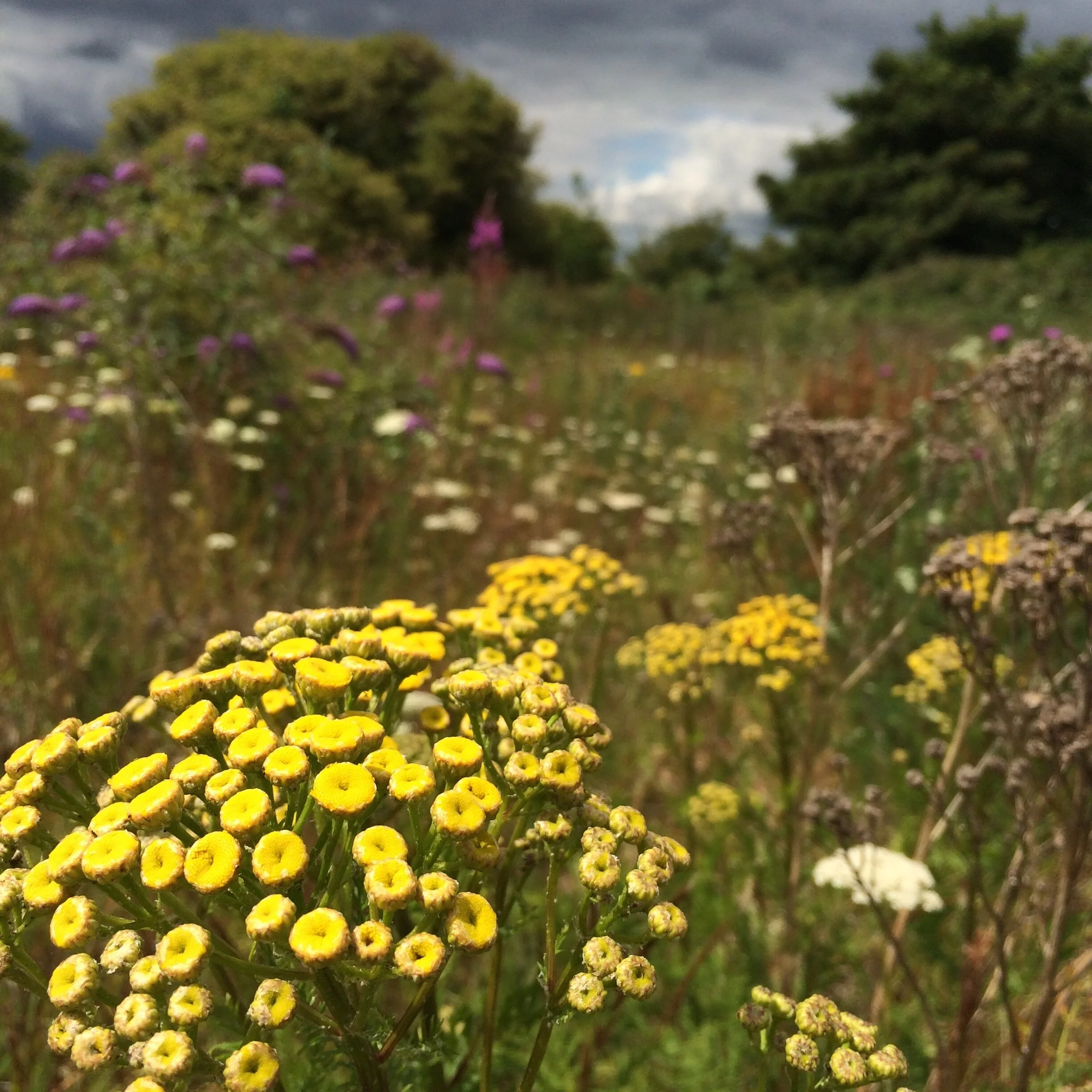
Currently supported by in 2022 & in partnership with The Bohemian Way, a Creative Climate Action project supported by Creative Ireland
Equality for All Pollinators
We do not need more beekeepers in Dublin. New research suggests that excessive populations of domesticated honeybees will compete with our native wild bees (21 Bumblebee and 71 solitary bee species) who are as valuable and often better pollinators than the honeybee. Many of these more fragile species are threatened by extinction due to habitat loss. The most important thing we can do for bees is do less by facilitating the rewilding of urban areas.
Nevertheless, there is growing concern about maintaining our virtually pure strain of Irish Black Honeybee, the Apis Mellifera Mellifera, which is challenged by the importation of more aggressive foriegn species. Our native Apis Mellifera Mellifera is the purest strain of this species in existence and also has cleverly adapted to forage in the rain to survive the challenges of Ireland’s climate. NUI Galway and the National Biodiversity Data Centre have initiated a citizen science programme to document and monitor feral native honey bee colonies living in the wild. Healthy honeybee colonies multiply, divide and look for a new home during swarming season, May - August. Bí URBAN’S SOW WILD 2022 Programme 2022 has been designed to support this research and the preservation of our native honeybee as well as all wild bee species in the following ways:
Rewilding: Collective creation a 10K network of new habitat for wild bees
Bí URBAN is giving away 1000 SOW WILD project packets to participants to support their collective engagement in wild habitat development in North Central Dublin
Refugee Housing: Installation of 10 Conservation Hives to attract feral honeybees
Arbour Hill Prison Joinery has built ten conservation hives which will be painted by local schools and installed in strategic locations to support monitoring by project participants.
Education: NatureRx workshops linking biodiversity to urban health and wellbeing
Bí URBAN will provide a series of events, walks and workshops that will provide participants with the knowledge and skills necessary to collect and submit valuable data to the National Biodiversity Data centre and other research institutions..
Future Proofing: Our collaborative research process will gather, share and reinforce participant knowledge while providing evidence to influence future urban planning: By the project end participants will be able to make practical application of the skills they have learned to accommodate wild bee populations in the future design and planning of their community and city.
STEP 1
ESTABLISH YOUR PLOT
Pick an unloved area in your community, garden, school etc. that could do with a bit of rewilding.
STEP 2
REGISTER & MAP
Join the Sow Wild Community to share experiences, and map where you’ve put your little seeds.
STEP 3
DOCUMENT
Conduct a little experiment to see how many and what kind of pollinators are visiting your garden.
STEP 4
COMPLETE THE CIRCLE
Learn how to collect and harvest seeds for the next season, continuing the cycle and developing a seed bank.
STEP ONE
ESTABLISH YOUR PLOT
Choose an appropriate site, PREFERABLY within a 100 metER range of another participant or wild place. If you don’t have our little packet of SOW WILD seeds don’t let that stop you!
Creating a valuable biodiversity rich site for pollinators is simple. Don’t do anything! If you stop mowing and leave a site alone it will revert to nature on its own over time and produce a beautiful array of native flowering plants. You will be amazed to watch the biodiversity that will emerge without invitation. Also, many shrubs and trees are a rich source of nutrition for pollinators and the shelter they provide is invaluable.
Basically, gardening for pollinators is about working with, rather than controlling nature. Wild is Beautiful! If you choose to introduce SOW WILD seeds on your plot remember that wildflowers prefer poor well drained soil and lots of sun (they are field plants). Clear soil of growth, sprinkle seeds sparingly and gently rake into the surface. Press the soil down gently to prevent seeds from blowing away.
Please note: The SOW WILD seed packet contains only native Irish wildflowers which can be found in our locality. This is important. “Most wildflower seed is imported from other countries and is not native. There is a huge risk of accidentally bringing in pest species like Black grass that, if spread, would be devastating to the Irish agricultural industry.” (Pollinators.ie).
We sourced our SOW WILD seeds from two very worthy not for profits recommended by the National Biodiversity Data Centre: True Harvest and Eco Seeds.

STEP TWO REGISTRATION & MAPPING
HOW TO REGISTER
Click the below button to register, and remember to click the Sow Wild check box. This way you can stay up to date on people’s findings, along with tips and discoveries along the way. You will also receive an invitation to our events and workshops in seed collection & identification.
HOW TO MAP
It’s super easy to map your actions! Use the below Padlet map, and record your actions by clicking the pink button at the top right and inputting any information you want: photos, descriptive writing, link to your own blog etc. you can remain anonymous on the map if you wish.

STEP THREE
DOCUMENT
Conduct a monthly ‘Fit Count’ to monitor the insects visiting your plot. A FIT or flower-insect timed count means watching a 50x50cm patch of flowers, and counting how many insects visit over the space of 10 minutes. We consider this almost like a meditation here at Bí, and find that making a cup of tea and relaxing next to your patch of wildflowers helps to free our busy minds momentarily, while also giving us a chance to connect with nature.
Please watch the National Biodiversity Data Centre’s video below, and create a journal of your findings to share with other citizen scientists via our NatureRx project.

STEP FOUR: COMPLETE THE CIRCLE
Learn to harvest wildflower seeds at NatureRx seed collection workshops. SOW WILD illustrates nature’s circular economy. Donate some of your harvest to the Bí URBAN SEED LIBRARY at the project end and seed the rewilding of Dublin for years to come.
Each SOW WILD seed packet contains 2gms of GOLD DUST FOR POLLINATORS
We have sourced 100% Pure Native Irish Wildflower Seed from True Havest and EcoSeeds. Our mixture contains annual and perennial species chosen to create permanent foraging for bees, butterflies, hoverflies, moths, wasps and other pollinating insects.

Our seed mix contains:
ONE FROM THE ARCHIVES
SPUDS - A citizen science project
A citizen science project which began in in 2012 as proactive response to the decision to trial genetically modified (GM) blight resistant potatoes in Ireland.
In the trial, 300 different growers took on the task of growing naturally blight resistant potatoes, and in a year when potato blight was at it’s worst over 90% of participants did not get blight and were happy with crop. We also collaborated with the Coolmine Therapy Community, who used the growing & harvesting process as part of a recovery programme.
The project highlighted the commercial viability of natural alternatives to industry standards, arguing the case for reducing fungicide, pesticide and the introduction of GM potatoes to Irish Agriculture.
The project also gave birth to our own brand of “Crisps with a Conscious”. Spuds crisps won a Bridgestone Award due to their taste, ethical agenda, and compostable packaging.
1,000 packets planted 100 metres apart will create a 10 kilometre long network of wild native habitat to support all members of our pollinator community.
Designed by Bí URBAN as part of NatureRx, our Green Prescription for the City. Find links to NatureRx activities, project partners and further information here
PROJECT PARTNERS
The National Biodiversity Data Centre - The All Ireland Pollinator Plan
True Harvest - Native Irish Wildflower Seeds and Seed Collection Workshops
Eco Seeds - Native Irish Wildflower Seeds and Conservation Consultancy
